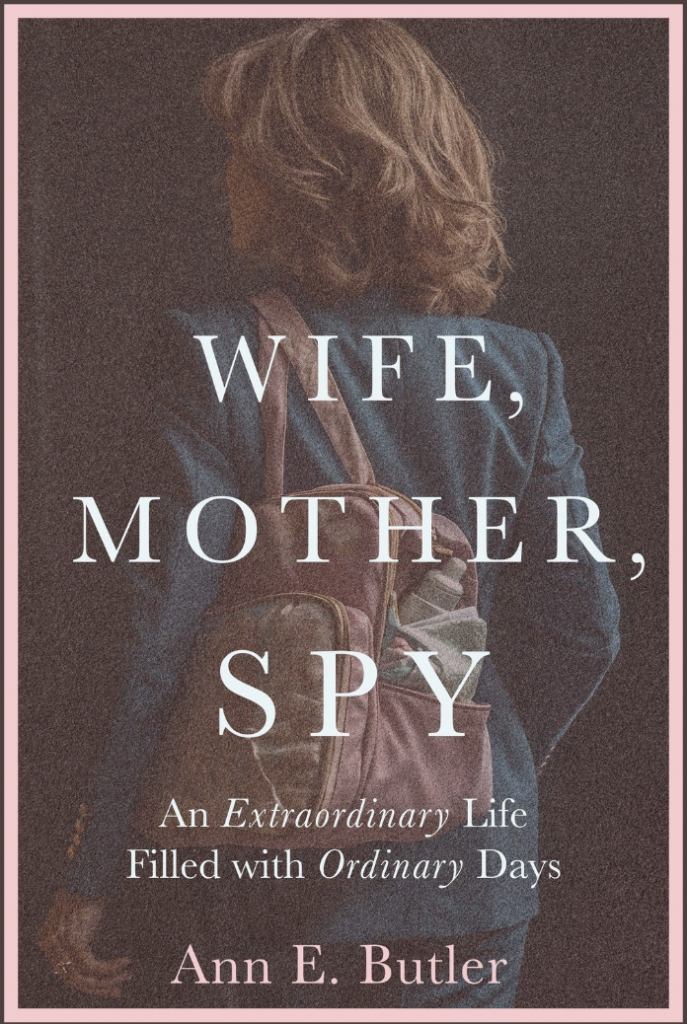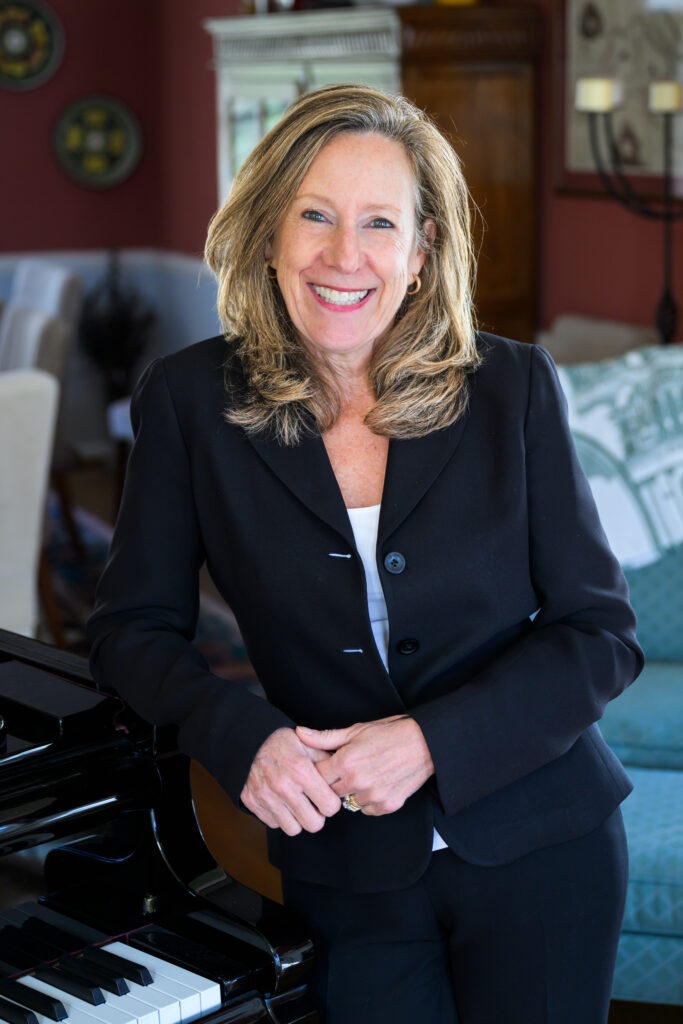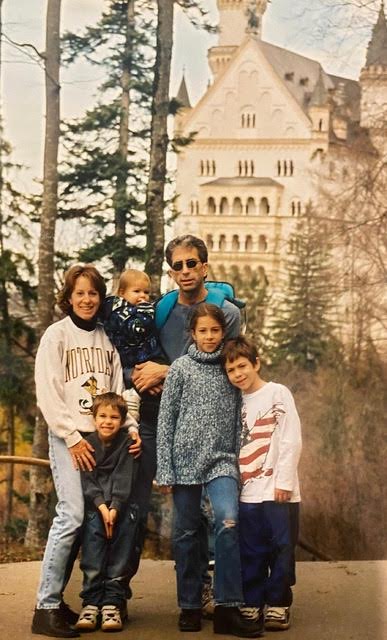
OUT OF THE SHADOWS
By Chris Wadsworth
For decades, other than her closest family members, no one really knew what Ann Butler did for a living. Not her childhood friends, nor her college friends and certainly not the neighbors her family befriended while living around the globe in European capitals, or North Africa, or Texas or New York. Not even her neighbors right here in Ashburn.
That’s because while Butler’s cover story was that she was a diplomat with the State Department, she was really an undercover officer for the CIA.
“When people think of the CIA, they think it’s kind of exotic and cool and different,” Butler said. “But actually, to me, it was quite ordinary.”
We beg to differ. After majoring in economics at the University of Notre Dame, and pursuing intensive French language and culture studies overseas, Butler knew she wanted an international career. One of the opportunities that popped up on her radar – the Central Intelligence Agency.
She got the job and went on to spend 27 years in a field that most people can only daydream about – frequent travel, secret disguises, covert meetings – all while raising a family of five kids with her husband, Joe Potak.
Let’s face it, it’s not every woman whose water breaks while she’s walking into a top secret rendezvous with a fellow officer.
Now retired from the Agency, Butler continues to work in the field, providing operational support and training services to the CIA via her own company. She and Potak are settled comfortably in Ashburn’s Farmwell Hunt neighborhood – in the same house the family originally bought way back in 2005 during a stint in D.C.
She’s also decided she’s ready to share her story. Her new book – “Wife, Mother, Spy: An Extraordinary Life with Ordinary Days” – has just been published.
In the book, she recounts her nearly three-decade career with the CIA, recruiting foreign assets overseas and working on some of the most sensitive matters affecting the United States and the world.
She also reflects on the impact her career had on her husband, as well as her children, who today range in age from 21 to 32. (It was a career some of her kids didn’t know about until their mom left the Agency in 2013.)
Butler shared some excerpts from her book with Ashburn Magazine. We present them here along with a short Q&A with the author. Together, they will give readers a glimpse into her career and how she blended being a wife and a mom with the world of espionage
EXCERPTS
About wearing disguises…
“I wore a ‘light disguise’ when meeting someone I knew I would likely not see again… It was something simple – a wig, facial marks, glasses. My simple, quickly thrown-together disguise that I kept handy in the safe next to my desk consisted of a blue patterned scarf, a pair of brown-framed glasses, makeup a shade darker than my complexion and a mole to place on my left cheek. It was easy to use, quick to pull together and compact enough to keep in my purse if I needed it in the field. They were all common enough items that no one would question why I even had them. I could easily and quickly change my appearance and present myself differently to someone I would never see again. The wig was slightly more complicated. It was something I wore when I had to dramatically change my appearance – such as having to get in and out of a place or to determine if someone was following me. It totally transformed my look.”
On a meeting in Texas that didn’t go as planned…
“My plan was to pick up my colleague then drive to a nearby restaurant for a brief dinner meeting to discuss the next day’s agenda. I had arranged the airport meeting via our secure communication method at the office. Tom would take over the case while I was away from the office on my maternity leave. We both knew and understood the plan. I had the restaurant picked out and the logistics under control. It was all so straightforward and simple. I drove into the parking lot at the small, regional airport on the outskirts of town. I continued through the gate and found a spot just a few rows away from the entrance. With a slight bit of difficulty, given my large, nine-month pregnancy belly, I extricated myself from behind the wheel of the car. I was running a few minutes behind schedule, so I began to walk rather briskly toward the front door of the terminal. Suddenly, just before reaching the airport entrance, I felt a warm liquid running down my leg. Within seconds, my lower extremities were soaked. My water had broken, and [our son] Kyle was on his way! Despite the hassle of being in labor and the quick change the trajectory of the day was taking, my colleague and I were both quite calm. After all, we were taught how to remain composed under crisis.”
On carrying a gun…
“I had very few outfits that came with a belt, and even if they did, the belt would not have held a holster. Since I was required to have my Glock with me whenever I was working outside the office, two of our technical officers did me a huge favor. They reconfigured my go-to, large, black Coach purse so that I could easily access my weapon whenever it was necessary. It also allowed me to inconspicuously carry it with me wherever I went. When the tech officers had completed their complicated sewing job, I was able to conceal my weapon and still use my bag every day to carry my notebook, wallet, keys and lunch. Essentially, these talented officers created a hidden compartment that securely held my gun. It worked beautifully.”
On meeting a foreign agent in secret…
“He had been working with us for a long time. Through a complicated covert communications system, we arranged a place and time for each follow-up meeting. They were always held after dark. The location needed to be away from casual observers and easy to access and depart from. I would already know how to arrive without dragging surveillance. It was close to 11 p.m. one evening. I had driven around for two hours already. I didn’t have any surveillance. I was clean. I proceeded toward the meeting spot, a pull-off area on a small road reached after several turns. The area was encircled by tall pines, making the spot hard to see. Just before the last turn on the larger road, I stopped, ensuring I wasn’t across from or next to any house. I had already turned the headlights off as I approached the spot. I opened the driver’s door and retrieved the screwdriver from my pocket and an envelope from under my seat. Then, I knelt down near the front bumper. Within a few seconds, I had removed the diplomatic license plate and replaced it with a local plate. I then hurried to the back of the vehicle and repeated the same process. I quietly slipped back into the driver’s seat, stashed the envelope with the plates I had just removed under my seat, put the car into drive, and eased around the corner where Tawfik waited in the shadows of a tree.”
On tough times for the kids…
“Eleven different schools in seven different cities in five different countries. Every new school meant learning a new routine, new ‘rules of the road,’ conferring with new teachers, and understanding a new administration. These moves were difficult for the children. They had it the hardest. They had no say in where we were going to live, what school they would attend, how long we would be there, or where we would go next. We decided it all for them. As we said goodbye to friends in one neighborhood, a place we had only lived two years, Kyle put his head down in his lap and sobbed. Still in elementary school, he was probably thinking of his friends down the street, or running through the neighbors’ backyards, or the sleepovers with his buddies, or the antics at the bus stop and wondering if his days would ever be so fun again.”
Q&A
Q: So, let’s talk terminology. Were you technically a spy? It’s in the title of your book, but how is it used in the CIA?
“That’s a very good question. It’s always met with some consternation, especially from those that work in the Agency. So here is what it means: When we recruit foreigners, they’ll be an agent working for us – a spy, in other words. We are considered [CIA] officers, so the designation is Case Officer or (more recently) operations officer.”
Q: So, you’re not technically the ones doing the spying. You’re recruiting people who are doing the spying on your behalf or the Agency’s behalf.
“That’s right. It’s complicated, and the reason ‘spy’ is in the book title is because it’s what people believe about the Agency. People generally understand that ‘spy’ means someone who gathers intelligence. If I simply said ‘Wife, Mother, Case Officer’ – no one outside the intelligence community would understand.”
Q: It sounds like you had an interesting and even exciting career, but it wasn’t all shootouts and car chases like in the James Bond movies.
“The work that the CIA does, that case officers do overseas, is intentionally discreet. It’s under the radar. We are quiet. We meet people. We go places. But we don’t talk about what we do.”
Q: When we asked if you had photos from your time overseas with the Agency, you didn’t have many. I guess spies don’t snap a lot of selfies.
“I don’t want to raise my hand and say, ‘Hey, look at me.’ I want to do my thing quietly, meet somebody, then go back to my office and write up my report. So, unlike in the James Bond movies – we don’t carry a weapon unless we have to, if it’s a dangerous place. We are taught to only shoot in an extreme situation. We certainly don’t want an international incident.”
Q: With a career like yours, you must have a very understanding husband.
“It was a challenge. My husband never knew where I was going, even if I had to leave the country to travel. He never worried about it because if he had to get a hold of me, there was a system – there were people he could call. He had a very checkered resume because of our moves. He knew what he was getting into marrying me. He had a career that he was excited about, but he had to keep looking for a new job every place we went. He took it in stride because he’s smart and is really good at what he does [network engineering]. He was able to get really great jobs, but it was tough for him to give them up over and over again with every move.”
Q: You’ve been retired from the CIA for a dozen years. Why write a book now?
“I initially wrote it for my children because I wanted to leave a legacy for them. I wanted them to know why we lived the life we lived. As I started writing things down, I realized there’s more to the story than just our life – the whole working mother thing. It’s very possible to have a really cool, interesting, fulfilling, exciting career and a really fun, satisfying family life. I wanted to tell others that it really is possible to have it all.”
HOW TO BUY THE BOOK
“Wife, Mother, Spy: An Extraordinary Life Filled with Ordinary Days” by Ann Butler is available from online booksellers Amazon.com and BN.com.
Butler is also having two “Meet the Author” event.
The first is at the Barnes & Noble store at One Loudoun in Ashburn on April 5 at 1pm. The second is at the Brambleton Library in Ashburn on Wednesday, April 30, from 7 to 8 p.m.




